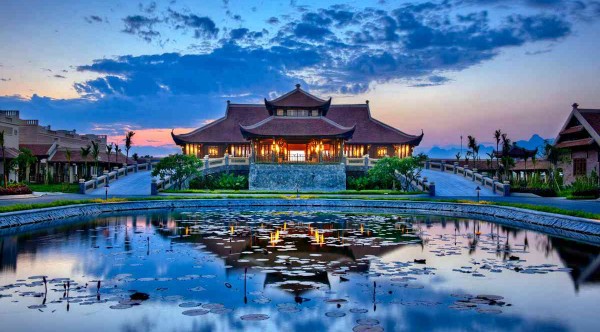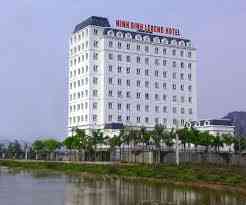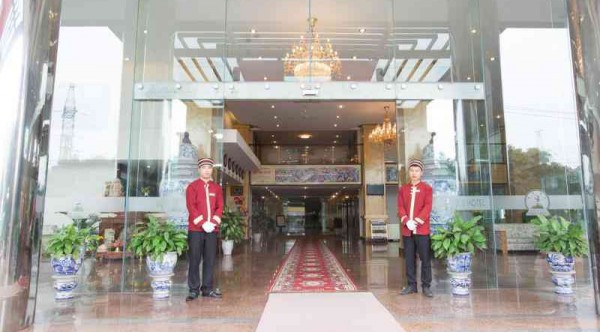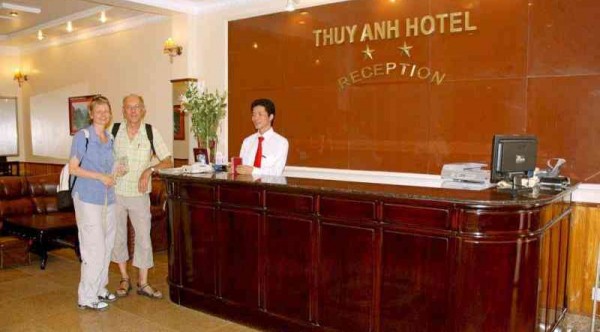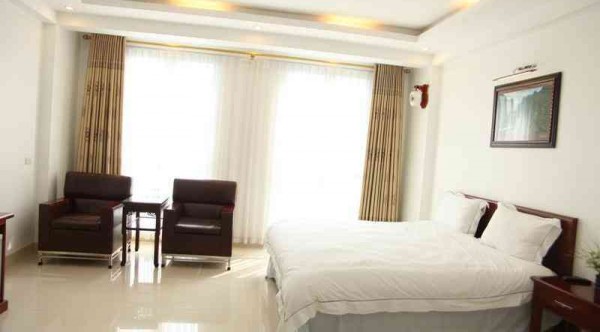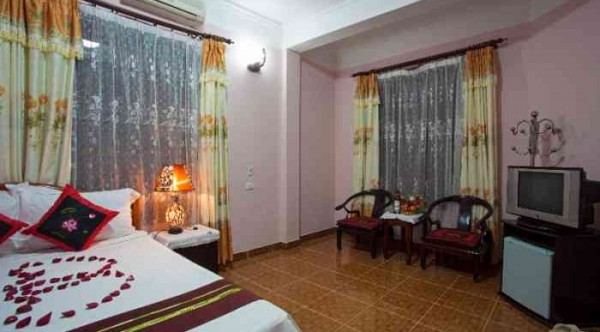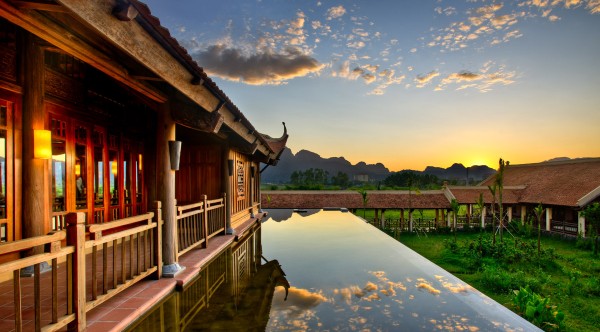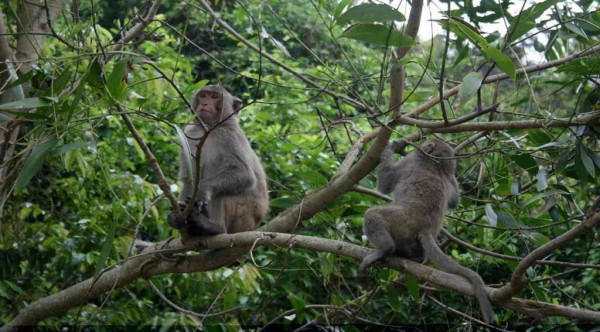
Ninh Binh - Hoa Lu Ancient Capital

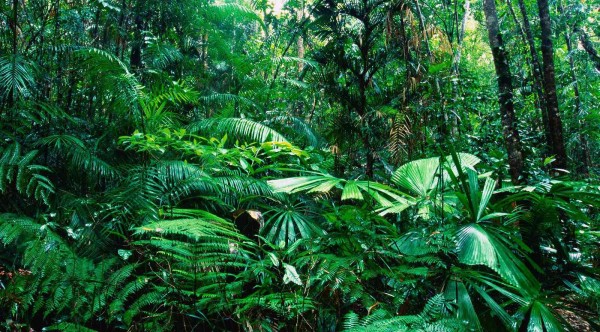
Cuc Phuong national park day trip
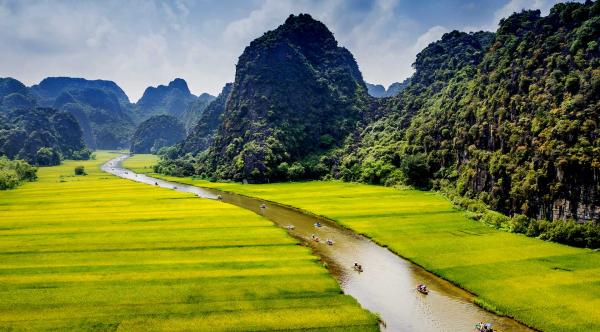
Explore Hoa Lu Ancient Capital and Tam Coc – Day trip
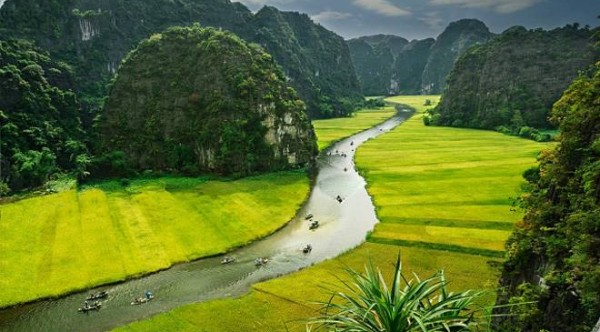
Pu Luong Nature Reserve and Cuc Phuong National Park Discovery Tour – 7...
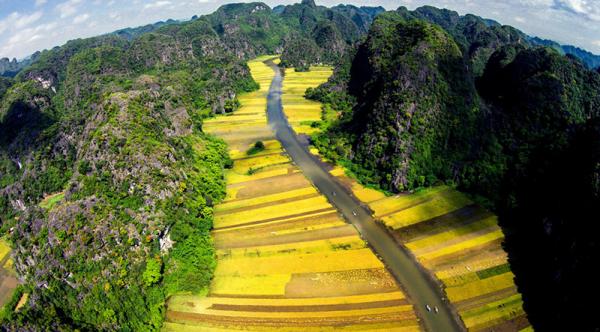
Emeralda resort Ninh Binh & hot spring 02 Days/ 01 Nights
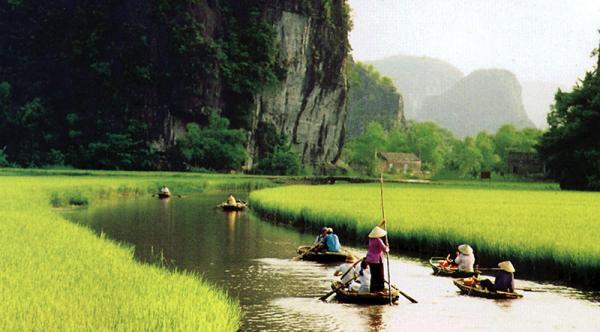
Discover Ninh Binh Cycles Tour 3 Days

Bai Dinh pagoda – Trang An – Tam Coc – Bich Dong pagoda...
Ninh Binh - Hoa Lu Ancient Capital
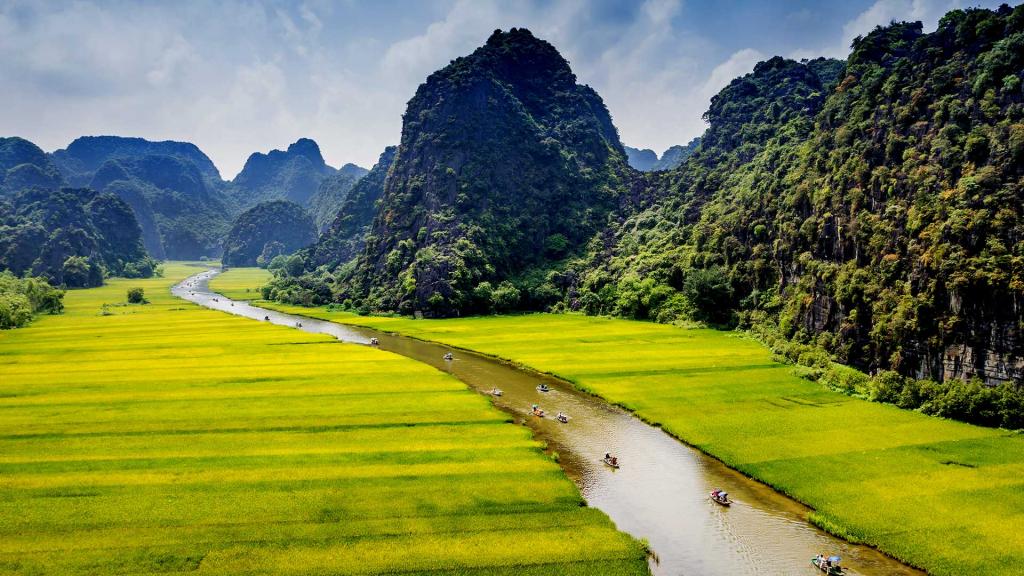
Located on the Southern end of the Red River Delta, Ninh Binh is blessed with diverse topography of both mountainous and coastal areas. It can be said that the province contains all the scenic quintessence of whole Vietnam within its relatively small size. Not only that, Ninh Binh represents typical rural villages of Northern region with vast green paddy field, expanding mountains and poetic river that flows to the horizon. Ninh Binh’s history is also worth mentioning: the ancient capital of Vietnam in the 10th century, Ninh Binh is a venue of relics that reflect its 1000 years of history and development.
Ninh Binh is about 95km from Hanoi, or 2.5 hour South by car. The province is surrounded by Hoa Binh and Ha Nam to the North; Nam Dinh to the East and Thanh Hoa to the West and South. Here, the terrain is diverse with mountainous areas in the West and Northwest; and coastal parts in the East and South.
The best time to visit Ninh Binh
The best time for you to visit Ninh Binh can be between Novembers to April of a new year.
You can visit it in the other months also but from November to April there is practically negligible rainfall thus you can enjoy the dry spell of nature with the natural beauties and sceneries as well. Since, the temperature is moderate throughout the year thus it does not matter which month you are visiting the beautiful place you do not need heavy clothes to be packed with you. Thus, make a plan and enjoy a lot with family and friends.
Getting There & Away
Train
Ninh Binh’s train station is just behind the bus station across the Van River from the post office. At least five trains a day stop en route to Hanoi and at least four stop heading south, taking around 3 hours. Fares vary depending on the class of train and seating.
Bus
Buses take around 2 to 2.5 hours to/from Hanoi, depending on the type of bus and the route it takes. Allow 2 hours to be safe. From Hanoi, buses leave from Giap Bat (southern) bus station.
Ninh Binh’s bus station is located near the railway station, just across the bridge leading to Phat Diem, on the last section of Tran Hung Dao (Highway 1) going south towards Hue. Buses to all destinations are frequent and you’ll rarely have to wait long. If you’re not staying near the bus station, you can wait on the main road — Tran Hung Dao — and wave down a bus, but you may be stuck sitting on the floor.
Most buses to Hanoi terminate at Giap Bat bus station, although some go to My Dinh. Either is a bit of a trek from Hoan Kiem.
Heading south, you may prefer to book onto an Open Tour bus to ensure you get a seat, as the next stop of particular interest is Dong Khoi, and that’s 400 kilometers away. Hotels can help with this.
Sights & Activities
This is what the most travellers come to Ninh Binh to see: limestone outcrops sweeping up from serene rice paddies, best appreciated on a languorous rowboat ride down the river, to the soundtrack of water lapping against the oars.
Cuc Phuong National Park
The primary forest in this gorgeous national park is home to an amazing variety of animal and plant lives, making it one of Vietnam’s most important protect areas. Wildlife found here includes 307 bird species, 133 kinds of mammal, 122 species of reptile and more than 2000 different species of plant.
The national park covers an area spanning two limestone mountain ranges, across three provinces. Its highest peak is Dinh May Bac (Silver Cloud Peak) at 656m. No less than Ho Chi Minh took time off from the American War in 1962 to declare this Vietnam’s first national park.
Cuc Phuong offers excellent hiking. Short walks include a large botanic garden with deer, civets, gibbons and langurs and via a 220 steps stairway, a trail up to the Cave of Prehistoric Man. Human graves and tools were found here that date back 7500 years, making it one the oldest sites of human habitation in Vietnam.
Phat Diem Cathedral
Home of a celebrated cathedral, remarkable for its vast dimensions and unique Sino-Vietnamese cum European architecture, Phat Diem is an impressive sight.
During the colonial era Phat Diem’s bishop ruled the area with his private army, Middle Ages-style, until French troops took over in 1951. The cathedral (1891) featured prominently in Graham Greene’s novel “The Quiet American”, and it was from the bell tower that the author watched battles between the North Vietnamese Army and the French.
Bai Dinh Pagoda
Bai Dinh Pagoda is 18km northwest of Ninh Binh, you’ll pass Trang An on the way as well as dozens of goat meat restaurant. The sheer scale of its Buddhist complex is astonishing, rising up the hillside of a rounded limestone mountain.
Trang An Grottoes
A huge new riverside development, Trang An offers a similar experience to Tam Coc, though it’s extremely commercial. The sheer number of boats, proximity to the highway, vast parking lots weekend traffic jams and all-round hustle make it something approaching a tourist circus. Once you’re actually on a row boat, bobbing along the Sao Khe River through a succession of limestone caves, obviously things improve considerably, but this is still an over-developed sight.
Van Long Nature Reserve
Van Long is 2km east of Tran Me, a small town 23km from Ninh Binh along the road to Cuc Phuong.
Set amid yet more glorious limestone pinnacles, this tranquil reserve comprises a reedy wetland ideal for bird-watching. Rare black-faced spoonbill, cotton pygmy goose and white-browed crake have been seen here and the reserve is also one of the last refuges of the endangered Delacour’s langur.
Row boat rides here are wonderfully relaxing.
Kenh Ga
Kenh Ga is 28km from Ninh Binh off the road to Cuc Phuong National Park.
The village of Kenh Ga (Chicken Canal) gets its name, apparently, from the number of wild chickens that used to live here. Today it’s the riverine way of life and stunning limestone formations that are its main draw.
The local people seen to spend most of their lives on or in water: watching over their floating fish-breeding pens, harvesting river grass for fish feed or selling vegies boat-to-boat. Even the children commute to school by river. This used to be largely a floating village, but as fortunes have improved more and more houses have been built.
From the pier you can hire a motorboat for a ½ hour ride along the river around village.
Eating & Drinking
The town doesn’t have much in the way of restaurant so plan to eat early as there’s very little available after 9 pm. The local specialty is De (Goat meat), usually served with fresh herbs and rice paper to wrap it in – around 3km out of town, the road to the Trang An Grottoes is lined with dozens of Goat meat restaurant
– Huong Mai Restaurant (12 Tran Hung Dao street) has an English menu, though the staffs don’t speak the language. Rice cakes cooked in beef broth are delicious here, and you’ll find good goat, seafood and exotica like eel cooked with banana too.
– Snail are another excellent local dish, the lanes north of Luong Van Tuy street, close to the stadium, have several Snail restaurants serving delicious “Oc luoc xa” (snail cooked with lemongrass and chilli); yo’ll also find a few casual bars in this area too.
In the warmer months, Bia hoi places become very tempting. Try the street-side-set-up directly opposite Thanh Thuy or the riverside places near local brewery.
| Country | vietnam |
|---|

